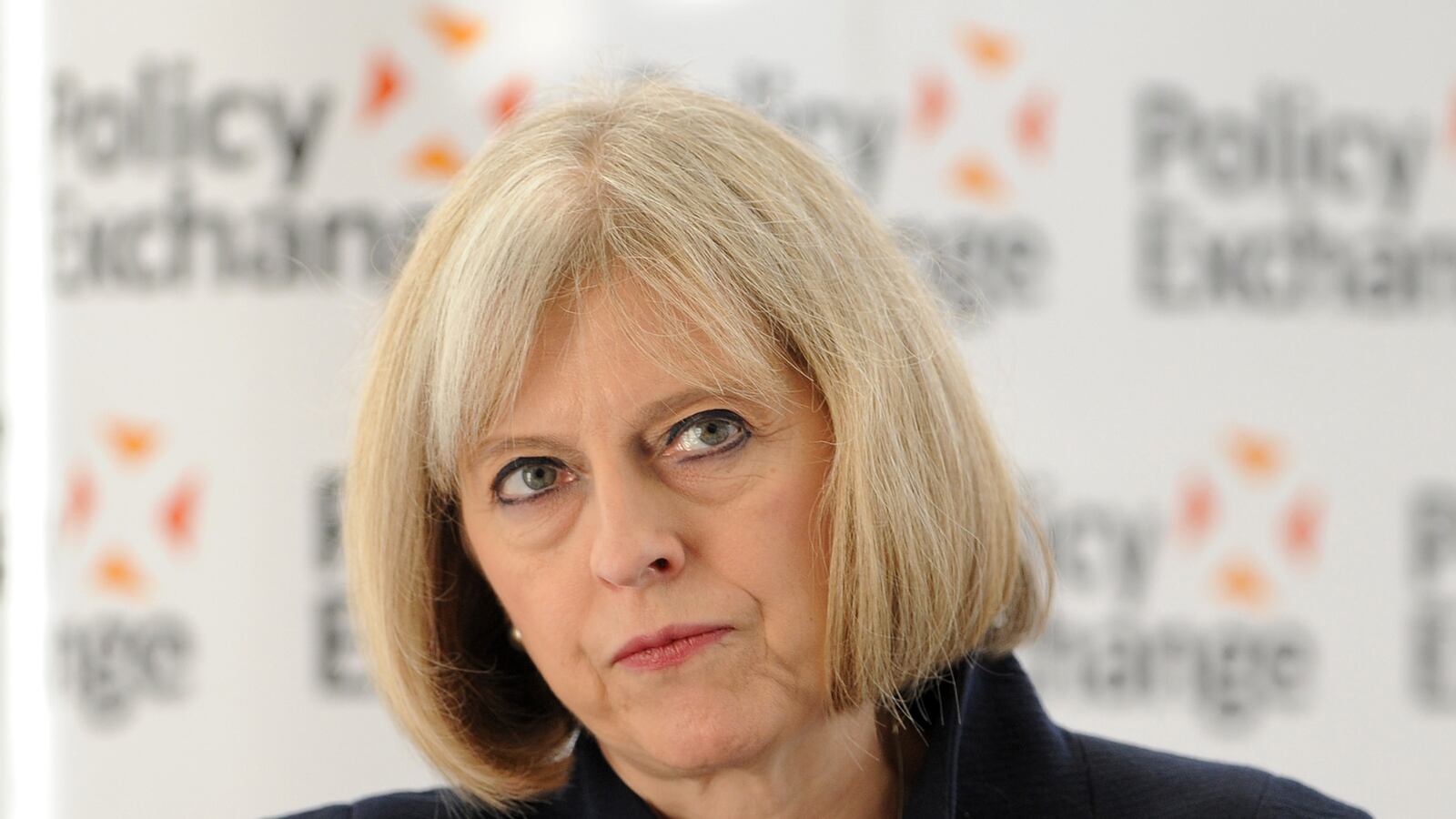LONDON — Britain has had enough: the government will announce radical plans to end centuries of free speech on Wednesday in an unprecedented terror crackdown that would force Internet companies to monitor users; restrict the movement of suspects and ban extremist speakers from public forums.
Theresa May, the Home Secretary, said the security services had foiled 40 plots to kill thousands of people in the last ten years, including the attempted assassination of an ambassador, plans to blow up the stock exchange, plots to bring down several flights and gun attacks that might have resembled the assault on a Nairobi shopping mall last year.
After years of bitter feuding within the government, the Prime Minister’s patience finally has snapped. The voice of a British ISIS terrorist calling on “brothers” in Western countries to commit domestic atrocities has helped to convince senior officials that concerns about civil liberties and freedom of speech can no longer be allowed to interfere with security operations.
If the measures are passed by Parliament, a raft of institutions will be forced to attempt to prevent radicalization actively for the first time. Universities, prisons, schools and local councils will be legally required to monitor those in their care and try to interdict extremist speakers and would-be terror recruiters.
Throughout its 800-year history, Cambridge University has guarded jealously its absolute right to free speech. After an investigation into extremists on British university campuses last year, a spokeswoman defiantly told me: ”There's complete freedom for students to invite who they want.”
That freedom would be ended by Conservative government proposals, which will require speakers to be vetted by the university. Government ministers would have the power to overrule the university and obtain court orders to stop speakers addressing students if they felt there was a risk of radicalization.
Student Rights, an organization which has tracked extremists on campus for five years, welcomed the requirement to monitor speakers but said the universities would need government help to do so in a meaningful way. “Given the number of events which take place across the UK it is likely to be difficult to enforce,” said Rupert Sutton.
Human rights groups, however, said the measures were “draconian” and counter-productive. “Politicians resort to high talk and rushed legislation in an attempt to look tough in the face of terrorism,” said Shami Chakrabarti, director of the human rights group Liberty. “Another chilling recipe for injustice and resentment by closing down the open society you seek to promote.”
A former government security advisor told The Daily Beast that senior Conservative Party figures had been split over the level of intervention and severity of the curbs on freedom of speech. Ultimately, as this source put it, those who wish to “drain the swamp” defeated those who would wait for the “crocodiles to reach the boat.”
May, the tough Home Secretary who is favorite to succeed David Cameron as party leader, said there was now no alternative but to tackle potential terrorists before they acted. ”This legislation is important, the substance is right, the time is right and the way in which it has been developed is right,” she said. ”It is not a knee-jerk response to a sudden perceived threat. It is a properly considered, thought-through set of proposals that will help to keep us safe at a time of very significant danger.”
”We are engaged in a struggle that is fought on many fronts and in many forms,” said May. “It is a struggle that will go on for many years. And the threat we face right now is perhaps greater than it ever has been—we must have the powers we need to defend ourselves.”
As well as restricting freedom of speech, the sweeping new powers would also curtail the free movement of suspected terrorists, who could be stopped from leaving the country, or from returning to the country or even forced to live in in a sort of internal exile away from their associates.
Police and Border Force officers will be granted new powers to seize passports and tickets from British citizens at ports and airports if they believe they are traveling to engage in terror-related activities. British citizens would also be barred from returning to the country if the authorities suspect they have been involved in terrorism abroad, effectively leaving them stateless.
Suspected jihadis who have been allowed to return to Britain are likely to be the subject of toughened monitoring measures, which can force them to move to another part of the country, live at a specified address, and even ban them from using the Internet.
Internet service providers also would be forced to create, store and make available databases of IP addresses which could help the security services monitor the past behavior of new suspects.
Scotland Yard said the threat of jihadis returning from fighting alongside ISIS had been a factor in the increased threat facing Britain. ”We have seen a step change that will sustain for many years,” said Assistant Commissioner Mark Rowley. ”Even if the awfulness that's happening in Syria and Iraq was miraculously to get sorted in the next year or so—and that looks a very optimistic 'if'—there are other countries across parts of Africa and elsewhere in the world which are in parlous states and the potential for this type of terrorism to reach back into Europe to continue in other theatres is equally great.”






